12 Best Cities for High Paying Jobs
Getting hired in today’s tough job market is hard.

Profit and prosper with the best of Kiplinger's advice on investing, taxes, retirement, personal finance and much more. Delivered daily. Enter your email in the box and click Sign Me Up.
You are now subscribed
Your newsletter sign-up was successful
Want to add more newsletters?

Delivered daily
Kiplinger Today
Profit and prosper with the best of Kiplinger's advice on investing, taxes, retirement, personal finance and much more delivered daily. Smart money moves start here.

Sent five days a week
Kiplinger A Step Ahead
Get practical help to make better financial decisions in your everyday life, from spending to savings on top deals.

Delivered daily
Kiplinger Closing Bell
Get today's biggest financial and investing headlines delivered to your inbox every day the U.S. stock market is open.

Sent twice a week
Kiplinger Adviser Intel
Financial pros across the country share best practices and fresh tactics to preserve and grow your wealth.

Delivered weekly
Kiplinger Tax Tips
Trim your federal and state tax bills with practical tax-planning and tax-cutting strategies.

Sent twice a week
Kiplinger Retirement Tips
Your twice-a-week guide to planning and enjoying a financially secure and richly rewarding retirement

Sent bimonthly.
Kiplinger Adviser Angle
Insights for advisers, wealth managers and other financial professionals.

Sent twice a week
Kiplinger Investing Weekly
Your twice-a-week roundup of promising stocks, funds, companies and industries you should consider, ones you should avoid, and why.

Sent weekly for six weeks
Kiplinger Invest for Retirement
Your step-by-step six-part series on how to invest for retirement, from devising a successful strategy to exactly which investments to choose.
Getting hired in today’s tough job market is hard. Landing a position that pays well is even harder. The secret to a successful search for employment that comes with a fat paycheck lies in looking for work in the right places. That’s why we crunched the numbers to identify 12 of the best cities for high-paying jobs.
We started with Kiplinger’s Personal Finance magazine’s list of the best value cities in the U.S., which favors metro areas with healthy local economies, affordable living costs and appealing amenities. Then we used data from the U.S. Bureau of Labor Statistics and Indeed.com, a job-search Web site, to pinpoint cities with below-average unemployment and above-average income growth.
Because we’re concentrating on locating the best cities for high paying jobs, we looked for places with a high total number of postings for jobs that pay at least $50,000 per year. We also made sure that the number of $50,000-plus job postings per 100 unemployed workers was greater than or equal to the average of 11.
To see the full rankings of all 98 cities we looked at, check out this map.

1. Manchester, N.H.
- Metro population: 400,721
- Unemployment rate: 5.3% (U.S. avg.: 8.6%)
- Income growth: 4.64% (U.S. avg.: 2.96%)
- $50K+ job postings: 2,681
- $50K+ job postings per 100 unemployed: 47 (U.S. avg.: 11)
Manchester weathered the recession with a 6% unemployment rate, and the former mill town’s strong income growth and refurbished business district still make it a promised land for job seekers. Finance and health care are traditionally strong sectors here, with average wages between $64,000 and $75,000 a year. Six percent of city residents work in management positions, pulling in $105,000, on average. Employers such as the Southern New Hampshire Medical Center and Elliot Hospital are hiring for high-paid positions in nursing, information technology and management.

2. Washington, D.C.
- Metro population: 5,582,170
- Unemployment rate: 6.1%
- Income growth: 4.89%
- $50K+ job postings: 56,367
- $50K+ job postings per 100 unemployed: 30
The District of Columbia promises job openings in the tens of thousands – and not any old openings, either. The average annual wage in the District runs 40% above the national average, dwarfing even larger, costlier cities such as Boston and New York. Nearly 1 in 10 Washingtonians work in finance, often as government analysts, pulling in more than $83,000 a year. An additional 8% work in management jobs, where average salaries run above $125,000. Government contractors, such as General Dynamics and Northrop Grumman, are hiring.
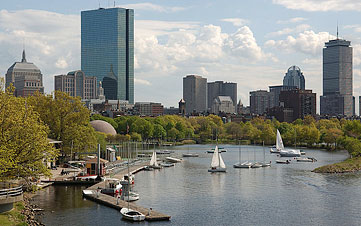
3. Trenton, N.J.
- Metro population: 366,513
- Unemployment rate: 7.8%
- Income growth: 6.10%
- $50K+ job postings: 11,242
- $50K+ job postings per 100 unemployed: 71
A former industrial town turned government center, Trenton’s job, salary and technology-sector growth rank among the top 50 in the country. The overlooked capital city boasts something else, too: low competition for high-paying jobs. Bristol Myers Squibb, Princeton University and the University of Medicine and Dentistry of New Jersey are all hiring in the region, with openings for business managers, financial analysts and research scientists. Trenton’s largest industries include finance, health care and computer technology, which collectively employ 20% of the city’s workforce at an average of $75,000 to $87,000 a year.
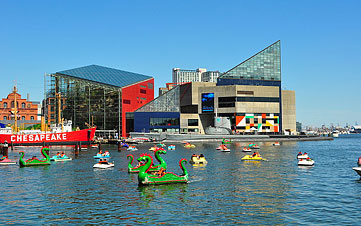
4. Boston
- Metro population: 4,134,036
- Unemployment rate: 6.6%
- Income growth: 4.33%
- $50K+ job postings: 31,899
- $50K+ job postings per 100 unemployed: 19
Boston is the center of New England’s finance, information-technology and health care sectors, which means that jobs in Beantown are both abundant and well-paid. In fact, the city’s most common occupations include registered nurse ($87,630 a year, on average), general manager ($125,400) and software developer ($102,950). Firms such as Genzyme and Tufts Medical Center are currently hiring in the life sciences. And if current patterns hold, Boston’s economy will continue to grow. In 2011, it outpaced other large cities on almost every recovery metric, from unemployment levels to manufacturing job growth.

5. Baltimore
- Metro population: 2,710,489
- Unemployment rate: 7.6%
- Income growth: 5.62%
- $50K+ job postings: 18,583
- $50K+ job postings per 100 unemployed: 17
Baltimore’s booming life-science, international finance and maritime commerce sectors make the port city a prime place to score a competitive job. Johns Hopkins University and its accompanying medical system are the city’s largest employers, with 1 in 10 city residents working in health care or research. Meanwhile, Baltimore’s technology and defense sectors are growing. Mosaic Techologies Group, SAIC and Northrop Grumman are hiring analysts, systems administrators and program managers at starting salaries well over $50,000.
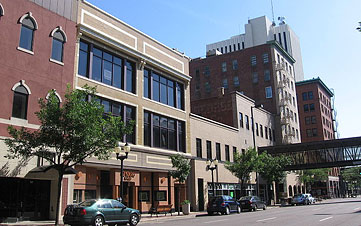
6. Worcester, Mass.
- Metro population: 798,552
- Unemployment rate: 7.8%
- Income growth: 4.22%
- $50K+ job postings: 5,622
- $50K+ job postings per 100 unemployed: 24
Worcester’s life-science sector is growing fast, and the sudden crop of new labs and offices means many biotech firms are hiring. Genzyme, a global medical research company, posted openings for automation engineers, analytical scientists and manufacturing associates; the UMass Medical Center needs analysts and developers. Roughly 15% of Worcester residents work in health care, life science or information technology. The annual salaries for these jobs fall in the $75,000 to $80,000 range. Managers, who make up 6% of Worcester’s workforce, can expect to make more than $109,000 annually.
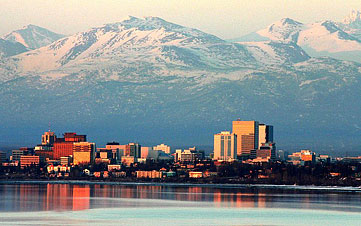
7. Cedar Rapids, Iowa
- Metro population: 257,940
- Unemployment rate: 6.0%
- Income growth: 3.82%
- $50K+ job postings: 1,365
- $50K+ job postings per 100 unemployed: 15
Cedar Rapids anchors the Midwestern tech, health care and finance sectors, and there are plenty of high-power firms hiring in all three. Rockwell Collins, an aircraft systems designer and the city’s largest employer, is looking for financial analysts, solutions architects and systems engineers. Aegon and the University of Iowa are also hiring en masse. Health care occupations pay an average of $62,000 a year in Cedar Rapids; computer and tech jobs pull in $65,000. One of every 20 residents works in a management position, earning roughly $95,000 a year.
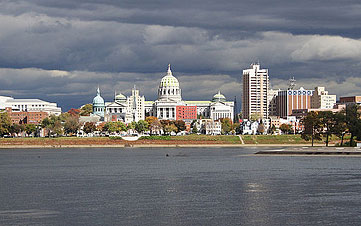
8. Anchorage, Alaska
- Metro population: 380,821
- Unemployment rate: 6.5%
- Income growth: 6.07%
- $50K+ job postings: 1,378
- $50K+ job postings per 100 unemployed: 11
Anchorage’s remoteness works in job seekers’ favor: Competition for jobs is relatively low, and companies pay top wages to lure talent north. Health care and energy are both top industries, with roughly 6% of the population working in each. CH2M, the international engineering firm, runs a large operation in the area and is currently hiring engineers, analysts and project managers. The Alaska Regional Hospital is looking for RNs. Average salaries for health care and extraction jobs are $89,240 and $60,410, respectively. Wages for all professions skew 16% above the national average.
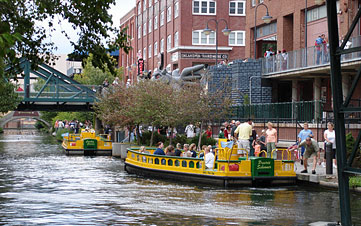
9. Harrisburg, Pa.
- Metro population: 549,475
- Unemployment rate: 7.4%
- Income growth: 2.95%
- $50K+ job postings: 3,703
- $50K+ job postings per 100 unemployed: 18
Despite a recent brush with bankruptcy, Harrisburg continues to be a boomtown for job seekers. Health care and state government, two of the city’s largest employers, always seem to need new blood. WellSpan Health, PinnacleHealth and the Penn State Hershey Medical Center are all hiring in Pennsylvania’s capital for positions ranging from nurse and physical therapist to systems manager. Harrisburg’s health care workers make $66,600 annually, on average. Thirteen percent of the city works in government, where salaries vary but managers can easily make more than $100,000.

10. Oklahoma City
- Metro population: 1,252,987
- Unemployment rate: 5.7%
- Income growth: 3.55%
- $50K+ job postings: 3,684
- $50K+ job postings per 100 unemployed: 11
Oklahoma City is the place the recession forgot. Even in the darkest days of 2008, the city skimmed by with a 3.7% unemployment rate and saw considerable growth in its medical, education and energy sectors. The pattern still holds: 7% of city residents work in health care, 6% work in education, and 6% work in construction and extraction, often for large oil and gas operations, such as Devon and Chesapeake Energy. In fact, Chesapeake is currently hiring accountants, analysts, project managers and a range of other positions. Salaries average north of $60,000 per year.
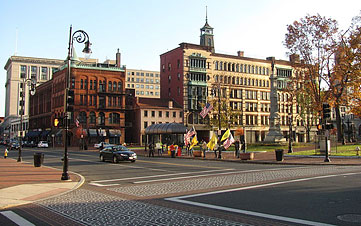
11. Minneapolis
- Metro population: 3,154,469
- Unemployment rate: 6.3%
- Income growth: 2.83%
- $50K+ job postings: 15,031
- $50K+ job postings per 100 unemployed: 13
Twenty-one Fortune 500 companies are headquartered in the Twin Cities, and thanks to a strong, diversified local economy, many of them are hiring. Minneapolis boasts vibrant finance, manufacturing, and professional and technical service sectors, as well as a growing export and medical technology industry. UnitedHealth, Target and Picis are all looking for business and systems analysts. General Mills and Xcel Energy are also hiring in the region. Salaries in Minneapolis’s business sector run about $65,000, while technical occupations rake in nearly $80,000 annually.

12. Springfield, Mass.
- Metro population: 692,942
- Unemployment rate: 8.4%
- Income growth: 3.12%
- $50K+ job postings: 7,077
- $50K+ job postings per 100 unemployed: 24
Landing a lucrative job in Springfield is easy. The city lies on a so-called “Knowledge Corridor” between Southern Massachusetts and Hartford, a region rich in tech companies, top hospitals and big universities. All three fields promise good jobs: Baystate Health is hiring nurses and speech pathologists; Travelers and Cigna Insurance are looking for research analysts and project managers. Salaries run about $70,000 a year and up.
Profit and prosper with the best of Kiplinger's advice on investing, taxes, retirement, personal finance and much more. Delivered daily. Enter your email in the box and click Sign Me Up.
-
 How Much It Costs to Host a Super Bowl Party in 2026
How Much It Costs to Host a Super Bowl Party in 2026Hosting a Super Bowl party in 2026 could cost you. Here's a breakdown of food, drink and entertainment costs — plus ways to save.
-
 3 Reasons to Use a 5-Year CD As You Approach Retirement
3 Reasons to Use a 5-Year CD As You Approach RetirementA five-year CD can help you reach other milestones as you approach retirement.
-
 Your Adult Kids Are Doing Fine. Is It Time To Spend Some of Their Inheritance?
Your Adult Kids Are Doing Fine. Is It Time To Spend Some of Their Inheritance?If your kids are successful, do they need an inheritance? Ask yourself these four questions before passing down another dollar.
-
 What to Do With Your Tax Refund: 6 Ways to Bring Growth
What to Do With Your Tax Refund: 6 Ways to Bring GrowthUse your 2024 tax refund to boost short-term or long-term financial goals by putting it in one of these six places.
-
 What Does Medicare Not Cover? Eight Things You Should Know
What Does Medicare Not Cover? Eight Things You Should KnowMedicare Part A and Part B leave gaps in your healthcare coverage. But Medicare Advantage has problems, too.
-
 15 Reasons You'll Regret an RV in Retirement
15 Reasons You'll Regret an RV in RetirementMaking Your Money Last Here's why you might regret an RV in retirement. RV-savvy retirees talk about the downsides of spending retirement in a motorhome, travel trailer, fifth wheel, or other recreational vehicle.
-
 The Six Best Places to Retire in New England
The Six Best Places to Retire in New Englandplaces to live Thinking about a move to New England for retirement? Here are the best places to land for quality of life, affordability and other criteria.
-
 The 10 Cheapest Countries to Visit
The 10 Cheapest Countries to VisitWe find the 10 cheapest countries to visit around the world. Forget inflation and set your sights on your next vacation.
-
 15 Ways to Prepare Your Home for Winter
15 Ways to Prepare Your Home for Winterhome There are many ways to prepare your home for winter, which will help keep you safe and warm and save on housing and utility costs.
-
 Six Steps to Get Lower Car Insurance Rates
Six Steps to Get Lower Car Insurance Ratesinsurance Shopping around for auto insurance may not be your idea of fun, but comparing prices for a new policy every few years — or even more often — can pay off big.
-
 How to Increase Credit Scores — Fast
How to Increase Credit Scores — FastHow to increase credit scores quickly, starting with paying down your credit card debt.
